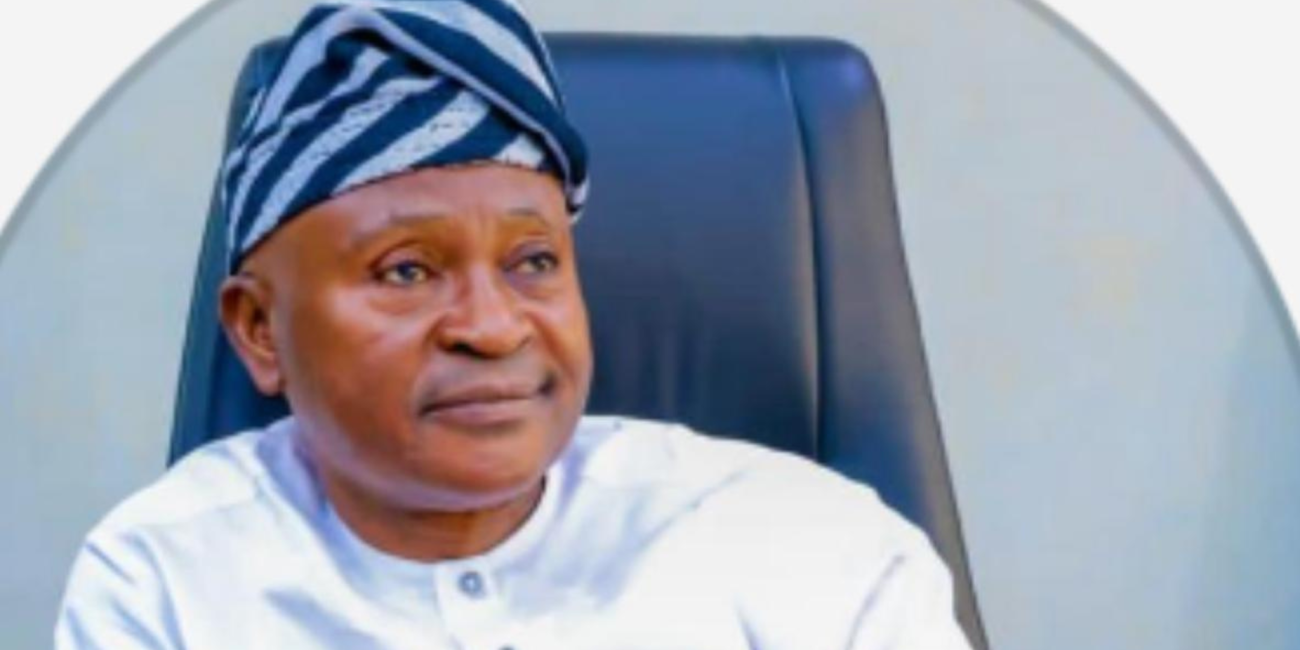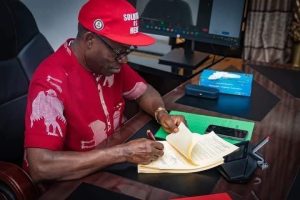Kidnappers Kill APC National Director After Collecting N90 Million Ransom
In what has been described as a chilling reminder of Nigeria’s growing security nightmare, the Director of Administration of the All Progressives Congress (APC), Dr. Abdulraif Adekunle Adeniji, was brutally murdered by kidnappers even after a ransom of N90 million was paid for his release.
The news of his death, announced on Thursday, April 10, 2025, has left the APC National Secretariat in Abuja—and indeed the entire nation—reeling in grief, outrage, and disbelief. For many, this incident underscores the unchecked wave of kidnappings and violent crime sweeping across Nigeria, sparing neither the rich nor the powerful.
This article examines the circumstances of Dr. Adeniji’s abduction and murder, the ripple effect it has created across Nigeria’s political landscape, and what this tragedy reveals about the deepening insecurity facing the country.
Dr. Adeniji was abducted on the night of January 26, 2025, in the Chikakore area of Kubwa, located within the Bwari Area Council of the Federal Capital Territory (FCT). He had been visiting his brother when gunmen, armed with AK-47 rifles, invaded the premises in a coordinated attack.
The gunmen reportedly stormed the area around 8:30 p.m., unleashing sporadic gunfire that sent residents into panic. Amid the chaos, Dr. Adeniji, his brother, and his wife were dragged out at gunpoint. Tragically, his wife was killed on the spot—shot dead because she could not keep up with the abductors as they force-marched their captives toward a forested area.
Eyewitnesses described the scene as horrifying.
“It was like a war zone,” one resident recounted. “We heard gunshots, screams, and then silence. By the time we came out, the gate was wide open, and their car was still running. It was terrifying.”
The incident initially drew only local attention. But as the days turned into weeks, and news of the ransom negotiations began to leak, concerns deepened about the welfare of Dr. Adeniji and his surviving brother.
According to sources close to the family, the kidnappers demanded a ransom of N100 million shortly after the abduction. Negotiations reportedly ensued, with family members and associates desperately raising funds to secure his release.
Eventually, about N90 million was paid—funds gathered from a combination of personal savings, loans, and support from political associates. But instead of releasing Dr. Adeniji, the kidnappers allegedly killed him. The details of how or when the murder occurred remain unclear, as his body has not been publicly recovered or confirmed by security agencies.
The betrayal—murder after payment—has ignited nationwide fury and despair. Many see it as yet another testament to the failure of the Nigerian state to protect its citizens or to hold criminals accountable.
Dr. Abdulraif Adekunle Adeniji was not just a senior bureaucrat; he was a seasoned administrator, known for his dedication to the APC since its formation in 2013. He had previously served in several public service capacities and held a PhD in Public Administration.
Colleagues describe him as soft-spoken, efficient, and committed to party ideals.
“He was the engine room of the Secretariat,” said Ubagha Abel, Deputy Director of Administration at the APC National Secretariat. “From organizing logistics to supervising policy documentation, Dr. Adeniji was central to our day-to-day activities.”
His tragic death has created a vacuum in the administrative structure of the ruling party and a deep wound in the hearts of those who knew him personally.
Following confirmation of Dr. Adeniji’s death, the APC immediately suspended all party activities. The National Secretary, in a directive issued through Deputy Director Ubagha Abel, declared a period of mourning lasting until Monday, April 14.
“The National Secretary has approved the closure of the National Secretariat from all party/work activities with immediate effect,” the statement read.
“All flags are to fly at half-mast throughout the period of mourning. You are advised to use the mourning period for sober reflection and prayers for the family and loved ones.”
Party offices across the country have since joined in the symbolic gesture, with condolence messages pouring in from governors, senators, and international diplomatic missions.
Dr. Adeniji’s murder is the latest in a string of high-profile kidnappings that have rocked Nigeria in recent years. From students to traditional rulers, religious leaders to politicians, few sectors of society remain untouched.
According to the Global Terrorism Index, Nigeria ranked among the top 10 countries most impacted by terrorism in 2024. Kidnapping-for-ransom has now become one of the most lucrative criminal enterprises in the country, with victims paying millions in ransom annually.
“What happened to Dr. Adeniji could happen to anyone,” said security analyst Akin Olayemi. “No one is safe, not even high-ranking officials of the ruling party. If this doesn’t push the government into radical reforms, nothing will.”
The incident has triggered a political firestorm. Critics of the APC have accused the ruling party of hypocrisy—failing to deliver on promises of improved security while its own officials fall victim to the chaos.
The opposition Peoples Democratic Party (PDP), in a strongly worded statement, described the situation as “a national embarrassment.”
“If a top APC official can be kidnapped and murdered in the capital after a ransom was paid, what hope is there for the average Nigerian?” the statement read.
Civil society organizations, including the Human Rights Writers Association of Nigeria (HURIWA), have called for a complete overhaul of the country’s security architecture.
While politicians debate, a family is left devastated. Friends, neighbors, and church members of the Adeniji family in Abuja gathered for a candlelight vigil on Friday night. With tears streaming down their faces, mourners recounted stories of his kindness and generosity.
“He paid my son’s school fees last year,” said one neighbor. “He was a good man. He didn’t deserve this.”
His brother, who was kidnapped alongside him but later released, has remained out of the public eye, reportedly in trauma counseling and mourning privately with family.
Unfortunately, Dr. Adeniji’s case is not unique. In recent months, several similar cases have made headlines
Yet, in nearly all these cases, the perpetrators remain at large. Arrests are rare, and successful prosecutions even rarer. Many victims and families never even receive closure.
The murder of Dr. Adeniji after the payment of ransom highlights systemic failures at multiple levels. It underscores how kidnapping has evolved from an insurgency-related crime in the Northeast to a full-blown national crisis with its own economic structure.
Informal negotiations between families and kidnappers often go unregulated and unmonitored, further emboldening criminal groups.
Moreover, there is no national victim support program. Families are left to bear not only the psychological toll of abduction but also the financial ruin that comes with raising huge ransom sums.
Analysts and civil society advocates have proposed the following reforms in response to the growing menace:
The murder of Dr. Abdulraif Adekunle Adeniji is more than just the loss of a party official; it is a national tragedy and a wake-up call. It symbolizes the depth of insecurity in Nigeria and the dire need for transformative change.
If a senior member of the ruling party cannot be protected in the nation’s capital, what hope remains for rural farmers, students, and everyday citizens?
Until Nigeria takes bold and decisive steps to end the scourge of kidnapping and impunity, the cycle of tragedy will continue—and more candles will be lit in mourning, instead of celebrations of life and freedom.
Source: LIB





